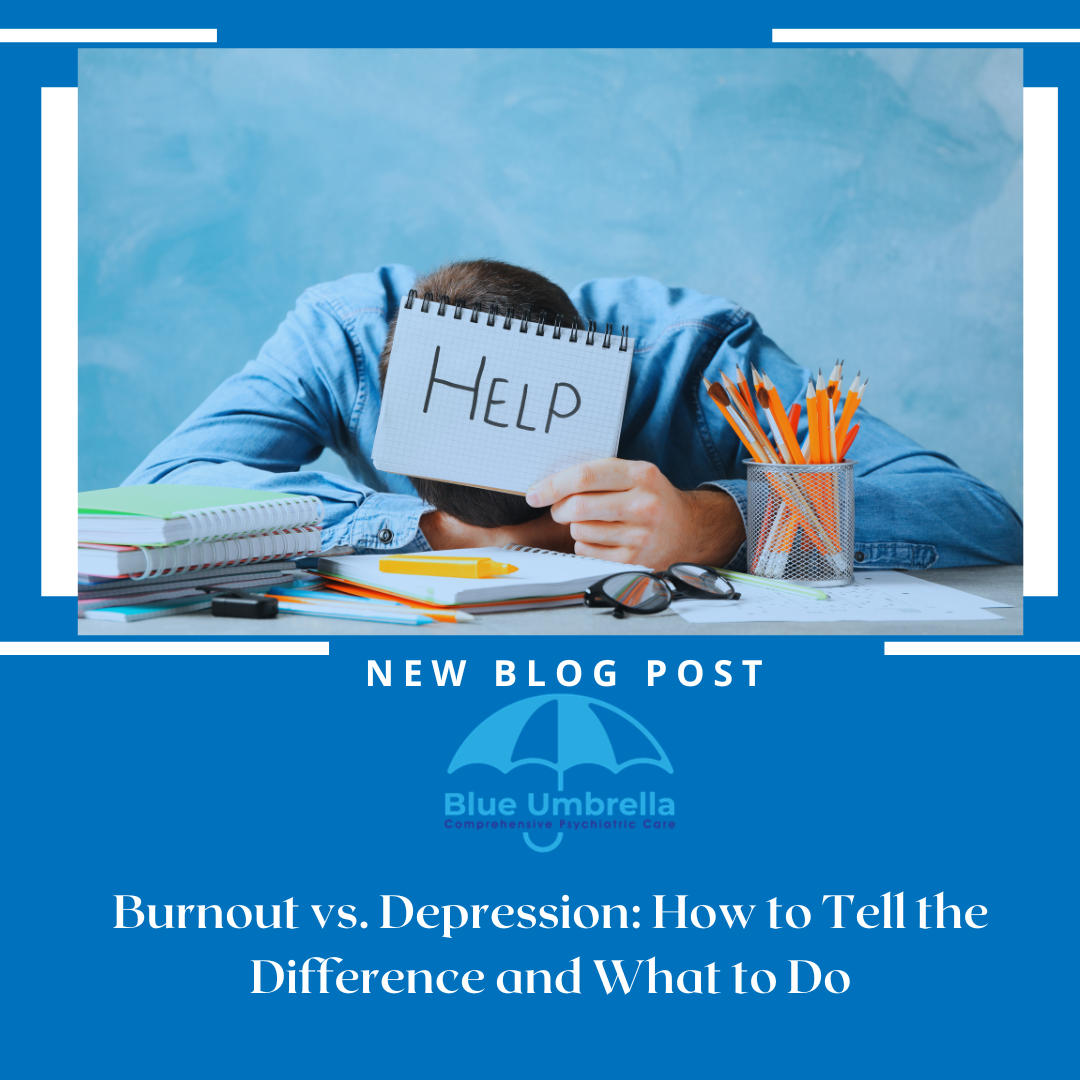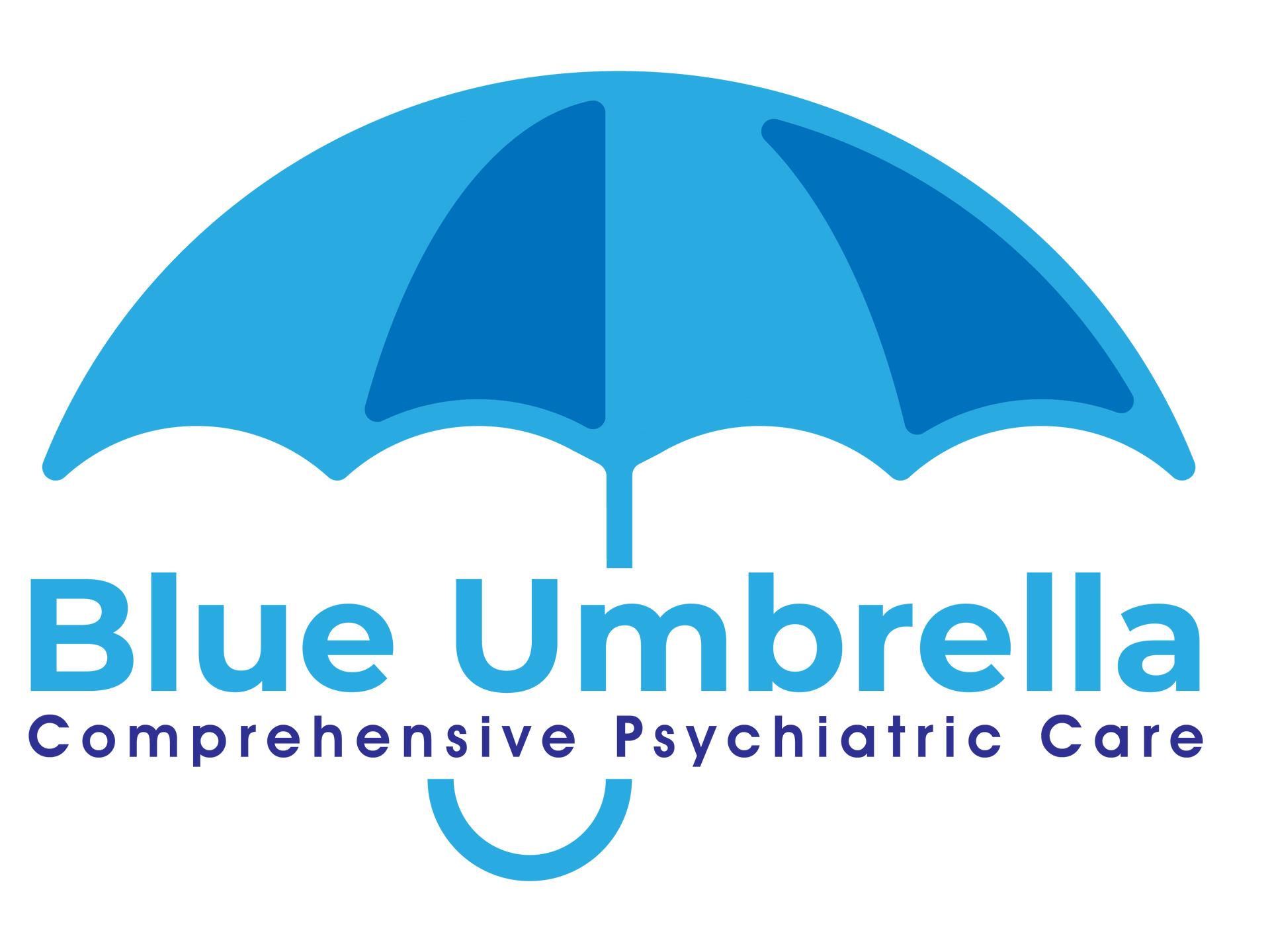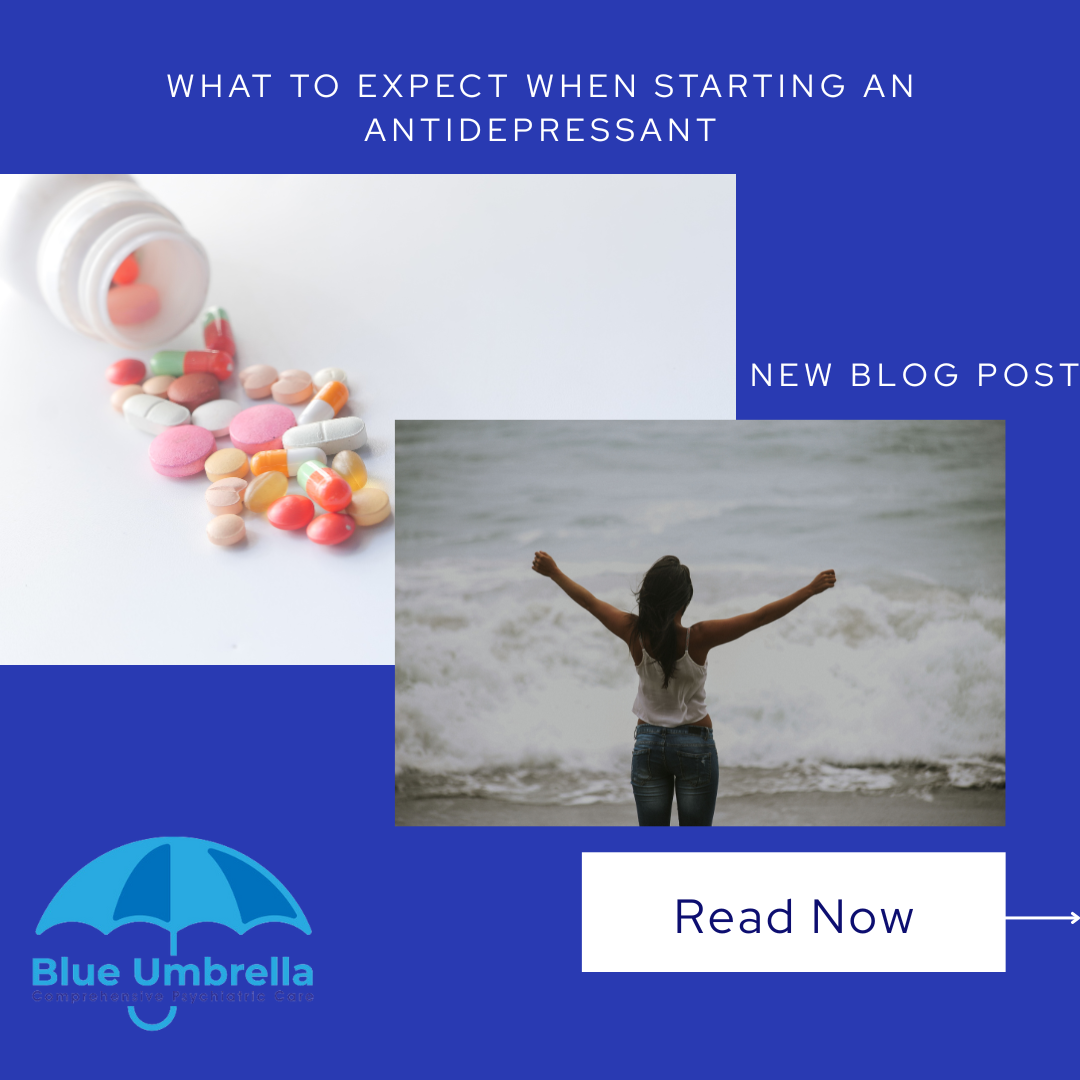
Feeling Exhausted, unmotivated, and emotionally drained? You might be wondering if it's burnout— or something more. Burnout and depression can look and feel very similar, but understanding the difference is key to getting the right kind of support. At Blue Umbrella Psychiatry, we help patients every day untangle these overlapping experiences and find personalized treatment that brings real relief.
Why It's Important to Know the Difference
Both burnout and depression can leave you feeling hopeless, tired, and disconnected from your usual self. However, the causes—and the solutions—are often different
- Burnout is typically tied to chronic stress, especially from work, caregiving, or feeling emotionally overwhelmed without adequate rest or support.
- Depression is a clinical condition that can affect your mood, thoughts, physical health, and ability to function—even outside of specific stressors.
While burnout may ease with rest and lifestyle changes, depression often requires professional treatment, including therapy and sometimes medication.
Our team at Blue Umbrella Psychiatry offers comprehensive evaluations to help identify what you're experiencing and guide you toward the most effective path forward.
Signs of Burnout vs. Depression
Here's a quick guide to some of the common differences:
| Burnout | Depression |
|---|---|
| Tired but still able to enjoy some things | Loss of interest in almost all activities |
| Symptoms are often tied to one area (e.g., work) | Symptoms are more pervasive across all areas of life |
| Feeling emotionally drained, cynical, or detached | Feeling worthless, hopeless, or experiencing persistent sadness |
| Improves with rest, boundaries, or a break | Doesn't significantly improve with time off alone |
That said, you can experience both at the same time—which is why a proper assessment is so important.
How We Can Help
At Blue Umbrella Psychiatry, we begin with a psychiatric evaluation to fully understand your experience. This allows us to differentiate between burnout, depression, or any other underlying conditions, such as anxiety or trauma.
- Depending on your symptoms and needs, your treatment plan may include:
- Individual therapy to process emotions, explore coping tools, and set healthier boundaries
- Group therapy for shared support and skill-building
- Medication if symptoms are interfering significantly with your ability to function or if you're experiencing clinical depression
- Lifestyle support, including mindfulness, stress management, and sleep hygiene techniques
We take a holistic, personalized approach to ensure you're getting exactly what you need—nothing more, nothing less.
You Don't Have to Figure It Out Alone
If you've been struggling and aren't sure whether you're burned out, depressed, or both, don't go through it alone. Our team at Blue Umbrella Psychiatry is here to support you with compassionate care, clear answers, and customized treatment plans.
Call 954-341-5215 today to schedule your new patient consultation. Let's take the next step together toward healing and clarity.













